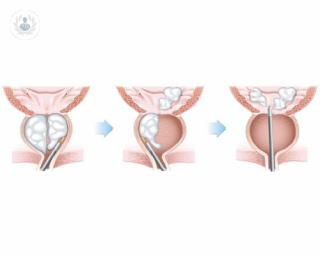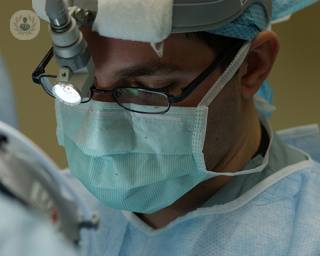
Redacción de Top Doctors
Urología
Robotic prostatectomy and prostate cancer
Prostate cancer is one of the most common cancers in men, and treatment options vary depending on the stage of the disease, the patient's overall health, and their preferences. One of the most advanced surgical treatments available is robotic-assisted prostatectomy, a minimally invasive procedure that uses robotic technology to remove the prostate gland while preserving as much normal function as possible.

















